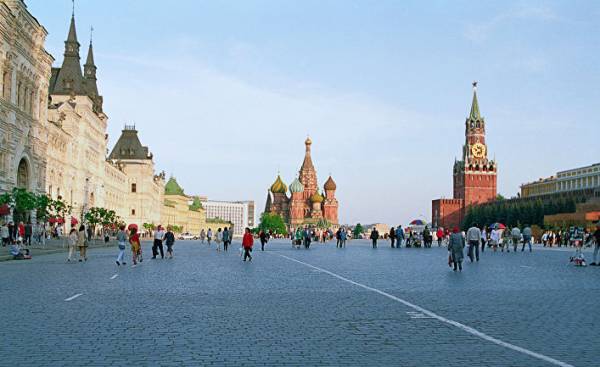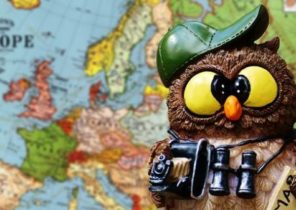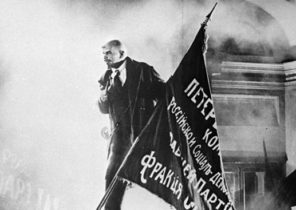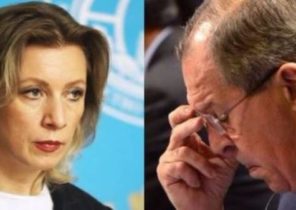
Speaking at the hay festival of literature and the arts (Hay Festival) in the Colombian city of Cartagena de Indios (Cartagena de Indias) on the occasion of the centennial anniversary of the October revolution Sebag-Montefiore said: “to understand the essence of the events in Putin’s Russia, and why is so strong the spirit of autocracy, we must turn to the history of the country and its traditions.”
Javier Lafuente: What’s new you have opened yourself to learning about Russian history?
Simon Sebag-Montefiore (Simon Sebag Montefiore): there Was lots of variety and amazing discoveries. Most of all I was struck by the fact that Russian history is subject to cycles: after the revolutionary upheavals and troubled times, after experiments with democracy, Russia returns to the form of government characteristic of autocracy.
— And why is Russia so strong an idea of its exceptionality?
— I think the idea of exclusivity is subject to all of the country. Russia is different from Western countries that it represents another civilization. Russia is not part of Latin civilization as we. It’s a different culture. Once Putin in conversation with the President of the United States said, “We look at the world as you, but we see him different.” This probably is the main conclusion of my research.
— What do you think is the value for modern Russia is the Romanoff dynasty?
— I would have said so, Putin is now skillfully uses policy, which at the time was held by Nicholas I. It is in opposition to the Western countries and using such slogans as: “autocracy, Orthodoxy, nationalism”. Putin has undertaken a number of successful military campaigns abroad. It is distinguished by conservatism. I think that the Russian President is most similar to Nicholas I.
— Which of the modern political leaders you could compare the Romanov dynasty?
— I don’t think anyone else similar to Romanov. Maybe Donald trump, who wants to be the first American king. In fact, he tries to be similar to autocrat.
— Russia seems to have achieved what they wanted. Donald, trump became the host of the White house. In your opinion, how will develop Russian-American relations at the trump?
— I think that the Russian are very effective because their policy is based on the destruction of Western ideology and self-reliance. Today this strategy is easy to implement, as in the West, people feel a sense of hostility and enmity not only to themselves but also to the established system of power. We are dissatisfied with everything, and how decisions are made and how politicians behave. Unfortunately, democracy has not managed to demonstrate their best qualities. We thought that the Internet will become the engine of progress. In fact, the Internet has become a tool of disinformation and lies.
— This year marks the centenary of the Russian revolution. What has survived in the modern world from the era?
— To some extent, Stalinism. The country of the Soviets in one form or another continues to exist. In 1991 the Communist party ceased to be the core of the Soviet Union, but the public security organs remain and perform the same function as in Soviet times. Hostility to the West, introduced by the Bolsheviks continue to exist.
— Who are the leaders of the Russian revolution is closer to you?
— From the Bolsheviks one. Perhaps Nikolai Bukharin differed for the better, but he was a supporter of mass repressions. It’s hard to sympathize with any of them, as all they wanted to build a new world through violence, murder and repression. I’m probably closer to Alexander Kerensky.
— When was perverted Soviet utopia?
— From the beginning of the revolution. She was tainted by Leninism, which has distorted the Communist idea.
If they hadn’t killed Trotsky, something would have changed?
— No, because Trotsky was a showman, not a politician. He never bothered finding allies. Trotsky was more interested in creating a political machine and expected that people will follow him, because he considered himself a brilliant politician.
— What’s left behind Stalin?
— The figure of Stalin is fear. However, in history it was the most successful Russian leader after Genghis Khan.
— How do you see the future of Russia?
In the long term, I think that the country will develop successfully. However, in the short term, I’m pessimistic look at Russia. This is due to the brain drain from Russia. Smart, liberal-minded people are leaving the country. Power is concentrated in the hands of one person. There is a great danger of the collapse of the country.
— How do you feel about Putin?
He’s a very talented politician and a good judge of character. But he is not eternal. Putin was able to successfully create a unified and centralized state, but it carries certain risks. He is constantly looking for ways to stay longer in power.
Like invent what Russia wants to create a Putin — Russia in a Soviet-style Empire or something still unseen?
— I think something in between the Romanov dynasty and the Soviet system. While Putin is committed to maintain a semblance of free elections and democracy. He has a high rating among the population. Probably much higher than that of the Russian emperors. Putin’s regime is much more popular than it was during the Soviet Union. He doesn’t shoot people, as did his predecessors. Russia is not a totalitarian state.
— Russia is now stronger than ever before?
— Yes, because Russia is able to act and influence. To win trump, America in some ways was paralyzed by Putin’s actions. Now Russia can extract some benefit for itself, unless of course trump is not going to aggravate relations with Russia. Only time will tell.
Simon Sebag-Montefiore is a historian, doctor of historical Sciences, fellow of the Royal literary society. His book “the Romanovs: 1613-1918”, “Stalin. Yard red monarch” became international bestsellers.







